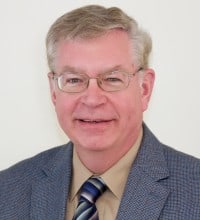By Rep. Jim Harrison
The Vermont Legislature adjourned sine die last Thursday evening, May 12, after several long days finishing bills that were still in process. Sine die is Latin for “without a day,” meaning the Legislature adjourned without fixing a day for a future session. Simply put, the Legislature cannot return until the new General Assembly is elected and seated next January, or the governor calls the Legislature back for a special session.
The Legislature often adjourns with an allowance to return and act on any bills that the governor may veto after the close of the regular session. However, by adjourning sine die it is very likely any vetoes in the next few weeks will stand. The exception to that is if the governor vetoes the budget (although he sounded positive overall with the package). Then he would have to call the Legislature back for a special session to enact a budget prior to the start of the new fiscal year, July 1.
The past week saw two veto override votes fail in the House by just one vote.
The first would have allowed a charter change in Burlington to proceed that would have established additional tenant rights with a new “just cause” eviction policy. The governor believed it could hurt landlords and further limit the availability of rental housing.
The second was the clean heat legislation, that supporters believe is necessary to reduce greenhouse gas emissions and opponents feared could have put many fuel dealers out of business and increase the price of heating fuels. Scott wanted more details on the impacts of the initiative before he could support it. Additionally, some environmental groups objected to the increased reliance on biofuels.
The final budget package, H.740, received final passage in the Senate, 30-0, and House, 133-3. The record $8.3 billion plan allocates the one-time federal $1.2 billion ARPA funds in several strategic areas agreed on by the governor and Legislature.
These include housing, broadband, climate initiatives, clean water, and workforce development. Vermont State Colleges and the University of Vermont also saw $10 million increases in their base annual funding from the state.
Several tax breaks totaling $60 million were also approved, including:
Utilizes $20 million of the education fund surplus for a one-time reduction of the statewide education property tax rate (just under 10%)
Creates a new refundable tax credit for families equal to $1,000 per child aged 5 and under (phased out after $125,000 family income)
Expansion of Vermont’s existing child and dependent care tax credit
Expansion of Vermont’s earned income tax credit from 36% to 38% of federal credit
A new Vermont student loan interest deduction
Expansion of the income threshold for exempting Vermont taxes on social security benefits by $5,000 ($50,000 for single filers and $65,000 for married taxpayers)
New $10,000 military pension exemption using same income threshold as social security benefits
Other key bills passed last week and on their way to the governor include:
A major workforce and economic development initiative, S.11, totaling just over $100 million, passed both Chambers following an agreement at a meeting lasting until midnight earlier in the week.
Housing investments totally $90 million were approved. The controversial rental registry bill was removed from S.210 to avoid the potential for another veto.
A new contractor registry requirement for who have jobs exceeding $10,000, was included in the housing bill, S226. And several agreed upon Act 250 reforms were added to S.226, as the Act 250 standalone bill, S.234, faces an almost certain veto.
Universal school meals were funded for one year utilizing one-time surplus money in the Education Fund.
$22 million of the Education Fund surplus was set aside to potential PCB remediation at school buildings.
Legislation to expand Vermont’s bottle deposit bill ran out of time in the final days, as did a $15 minimum wage.
Two bills attempting to institute controversial police reforms ended up as study groups.
In closing, thank you for your interest in my legislative updates during this past session. I will check back in as pertinent information becomes available in the coming months. As previously mentioned, I plan to seek re-election this fall as the State representative for the new Rutland-11 district (Chittenden, Mendon, Killington, and Pittsfield).
And thank you to the citizens of Bridgewater, who have supported me these past five years. I will miss being their representative as the town becomes part of Windsor-4, along with Barnard, Pomfret, and part of West Hartford.
I will be giving a brief recap of the 2022 session at the Killington Seniors lunch on Thursday, May 19 at 11:30 a.m. at the Lookout Tavern on the Killington Road. Maybe I will see you there!
Jim Harrison is a state house representative for Bridgewater, Chittenden, Killington and Mendon. He can be reached at [email protected].




